It's a bit of an experiment, moving the lectures online. Definitely not the same thing as gathering in the old church , nibbling on cheese and interacting in person.
I had been debating whether to renew my subscription for the Heliconian since it would be a virtual year, but opted in for the whole season, in support of a good cause.
Whether I will read all 18 of the books, I'm not so sure, but it will still be fun to check out how the authors approach the lectures.
Kicking off the lecture series is one of my favourite books from 2019, and the author has agreed to attend my book club in May '21.
...
September 22- K.D. Miller: Late Breaking
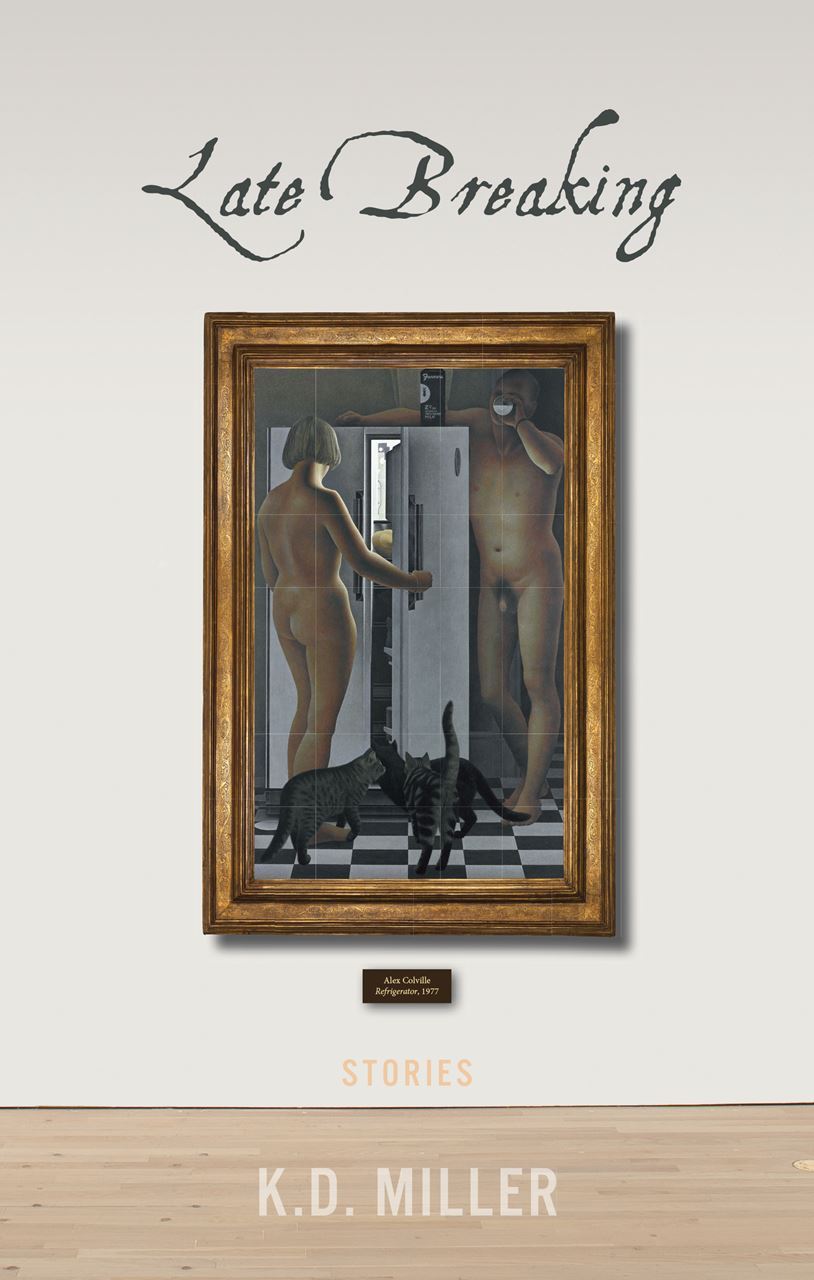 Inspired by the paintings of Alex Colville, Late Breaking offers a chilling portrait of a small and aging community. The linked stories explore the vulnerability of the elder heart and prove that love and sex and heartbreak are not only the domain of the young. Each character appears in at least two stories, in a greater or lesser role, the most common being a ghost who “haunts” the book throughout. Death is a constant, in both peaceful and violent forms. Together, the stories crystallize into something more than a novel, and confirm its author as one of the country’s best.
Inspired by the paintings of Alex Colville, Late Breaking offers a chilling portrait of a small and aging community. The linked stories explore the vulnerability of the elder heart and prove that love and sex and heartbreak are not only the domain of the young. Each character appears in at least two stories, in a greater or lesser role, the most common being a ghost who “haunts” the book throughout. Death is a constant, in both peaceful and violent forms. Together, the stories crystallize into something more than a novel, and confirm its author as one of the country’s best.
Finalist for the 2019 Governor-General’s Literary Award for Fiction.
September 24- MG Vassanji: A Delhi Obsession
 Two-time Giller Prize winner, M.G. Vassanji, returns with a powerful new novel about grief and second chances, tradition and rebellion, set in vibrant present-day Delhi.
Two-time Giller Prize winner, M.G. Vassanji, returns with a powerful new novel about grief and second chances, tradition and rebellion, set in vibrant present-day Delhi.
Munir Khan, a recent widower from Toronto, on a whim decides to visit Delhi, the city of his forbears. Born in Kenya, he has lost all family connections, and has never visited India before.
While sitting in the bar of the Delhi Recreational Club where he's staying, an attractive woman joins his table to await her husband. A sparring match ensues. The two are from different worlds: Munir is a westernized agnostic of Muslim origin; Mohini, a modern Hindu woman. Utterly witty and charming, she's religiously traditional, but also a liberal and provocative newspaper columnist. Against her better judgment, Mohini agrees to show Munir around the city. What follows is a passionate love affair.
This is a period of rising Indian nationalism in modern India that at times finds outlet in senseless violence. Constantly lurking at Munir's Club is the menacing and foreboding presence of a fanatical nationalist group. To them Munir Khan is simply a Muslim "love-jihadi" who has led the pride of Hindu womanhood, Mohini Singh, astray.
October 6- Steven Price: Lampedusa
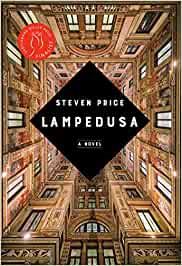 In sun-drenched Sicily, among the decadent Italian aristocracy of the late 1950s, Giuseppe Tomasi, the last prince of Lampedusa, struggles to complete the novel that will be his legacy, The Leopard. With a firm devotion to the historical record, Lampedusa leaps effortlessly into the mind of the writer and inhabits the complicated heart of a man facing down the end of his life, struggling to make something of lasting worth, while there is still time. Read The Leopard once you have read Lampedusa. It is considered an Italian masterpiece in its depiction of Sicily in the second half of the 19th century.
In sun-drenched Sicily, among the decadent Italian aristocracy of the late 1950s, Giuseppe Tomasi, the last prince of Lampedusa, struggles to complete the novel that will be his legacy, The Leopard. With a firm devotion to the historical record, Lampedusa leaps effortlessly into the mind of the writer and inhabits the complicated heart of a man facing down the end of his life, struggling to make something of lasting worth, while there is still time. Read The Leopard once you have read Lampedusa. It is considered an Italian masterpiece in its depiction of Sicily in the second half of the 19th century.
Finalist for the 2019 Scotia Giller Prize
October 22- Joan Thomas: Five Wives
 In the tradition of The Poisonwood Bible and State of Wonder, a novel set in the rainforest of Ecuador about five women left behind when their missionary husbands are killed, Five Wives is based on the shocking real-life events
In the tradition of The Poisonwood Bible and State of Wonder, a novel set in the rainforest of Ecuador about five women left behind when their missionary husbands are killed, Five Wives is based on the shocking real-life events
In 1956, a small group of evangelical Christian missionaries and their families journeyed to the rainforest in Ecuador intending to convert the Waorani, a people who had never had contact with the outside world. The plan was known as Operation Auca. After spending days dropping gifts from an aircraft, the five men in the party rashly entered the “intangible zone.” They were all killed, leaving their wives and children to fend for themselves.
Five Wives is the fictionalized account of the real-life women who were left behind, and their struggles – with grief, with doubt, and with each other – as they continued to pursue their evangelical mission in the face of the explosion of fame that followed their husbands’ deaths.
Winner of the 2019 Governor-General’s Literary Award for Fiction.
November 17- Anthony de Sa: Children of the Moon
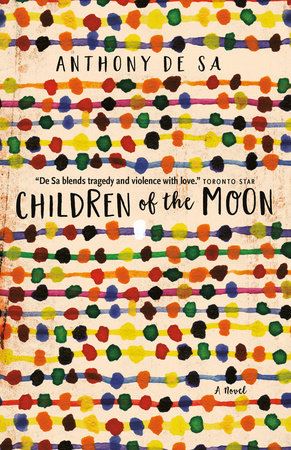 Tanzania, 1956. A Maasai woman gives birth to a child with albinism. The child is seen as a curse upon her tribe, and so begins Pó's tumultuous story. As Pó navigates the world, she must claim her life in the face of violence and ostracism.
Tanzania, 1956. A Maasai woman gives birth to a child with albinism. The child is seen as a curse upon her tribe, and so begins Pó's tumultuous story. As Pó navigates the world, she must claim her life in the face of violence and ostracism.
Further south, in Portuguese-controlled Mozambique, Ezequiel struggles for acceptance too. Adopted by missionaries, he is not recognized by his Portuguese father's community, or by his Makonde mother's tribe. When civil war erupts, he must choose who to fight for and who to leave behind.
November 26- Cary Fagan: The Student
 A portrait of a life in two snapshots.
A portrait of a life in two snapshots.
It’s 1957 and Miriam Moscowitz is starting her final year of university with unwavering ambition. She is a passionate student who studies hard, dates a handsome Jewish man with a good job, and is the apple of her father’s eye (and worry of her mother’s). But when a meeting with a professor she admires turns sour, her dreams of a life immersed in literature are extinguished and—perhaps for the first time—she becomes unsure of how to break a path for herself.
It’s 2005 and Miriam is readying her backyard for a wedding. She picks up one of her books from 1957 and reads the marginalia written in her young, minuscule handwriting. She wonders what the young person who had written all these words almost half a century ago has to do with the older woman who is deciphering them now.
The Student is a compassionate and compelling novel that brings together two pivotal times in history. In beautiful prose, it reveals how we are shaped by – and try to overcome – the constraints of our times.
Finalist for the 2019 Governor-General’s Literary Award for Fiction
January 26- Mike Barnes: Be With: Letters to a Caregiver
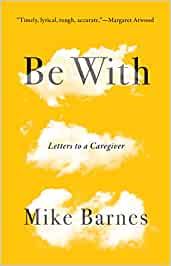 Drawing on the author’s seven years of caring for his mother through Alzheimer’s, Be With: Letters to a Caregiver is what its title promises: four dispatches to an anonymous long-term caregiver. In brief passages that cast fresh light on what it means to live with dementia, Barnes shares trials, insights, solace—and, ultimately, inspiration.
Drawing on the author’s seven years of caring for his mother through Alzheimer’s, Be With: Letters to a Caregiver is what its title promises: four dispatches to an anonymous long-term caregiver. In brief passages that cast fresh light on what it means to live with dementia, Barnes shares trials, insights, solace—and, ultimately, inspiration.
Mike Barnes writes with sensitivity and grace about fellowship, responsibility, and joyful relatedness—what it means to simply be with the people that we love.
Shortlisted for the Toronto Book Award
January 28- Jesse Thistle: From the Ashes: My Story of Being Métis, Homeless and Finding My Way
In this extraordinary and inspiring debut memoir,  Jesse Thistle, once a high school dropout and now a rising Indigenous scholar, chronicles his life on the streets and how he overcame trauma and addiction to discover the truth about who he is.
Jesse Thistle, once a high school dropout and now a rising Indigenous scholar, chronicles his life on the streets and how he overcame trauma and addiction to discover the truth about who he is.
Abandoned by his parents as a toddler, Jesse Thistle briefly found himself in the foster-care system with his two brothers, cut off from all they had known. Eventually the children landed in the home of their paternal grandparents, whose tough-love attitudes quickly resulted in conflicts. Throughout it all, the ghost of Jesse’s drug-addicted father haunted the halls of the house and the memories of every family member. Struggling with all that had happened, Jesse succumbed to a self-destructive cycle of drug and alcohol addiction and petty crime, spending more than a decade on and off the streets, often homeless. Finally, he realized he would die unless he turned his life around.
Through sheer perseverance and education—and newfound love—he found his way back into the circle of his Indigenous culture and family.
An eloquent exploration of the impact of prejudice and racism, From the Ashes is, in the end, about how love and support can help us find happiness despite the odds.
Finalist for CBC Reads and Indigenous Voices Awards
February 16 -Gil Adamson: The Ridgerunner
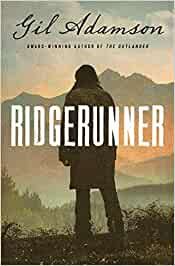
Part literary Western and part historical mystery, Ridgerunner is the sequel to Gil Adamson’s award-winning and critically acclaimed novel The Outlander.
November 1917. William Moreland is in mid-flight. After nearly twenty years, the notorious thief, known as the Ridgerunner, has returned. Moving through the Rocky Mountains and across the border to Montana, the solitary drifter, impoverished in means and aged beyond his years, is also a widower and a father. He is determined to steal enough money to secure the future of his son who has been left in the care of Sister Beatrice, a formidable nun, who keeps him in cloistered seclusion in her grand old house. Though he knows his father is coming for him, the boy runs away to the family’s cabin deep in the wood and takes with him something the nun is determined to get back — at any cost.
The novel is set against the backdrop of a distant war raging in Europe and a rapidly changing landscape in the West.
February 25- Derek Mascarenhas: Coconut Dreams
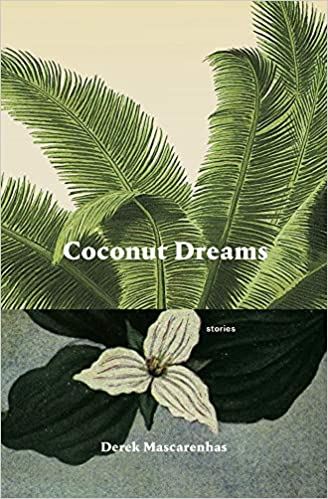 Coconut Dreams explores the lives of the Pinto family through seventeen linked short stories. Starting with a ghost story set in Goa, India in the 1950s, the collection weaves through various timelines and perspectives to focus on two children, Aiden and Ally Pinto. These siblings tackle their adventures in a predominantly white suburb with innocence, intelligence and a timid foot in two distinct cultures. Derek Mascarenhas takes a fresh look at the world of the new immigrant and the South Asian experience in Canada.
Coconut Dreams explores the lives of the Pinto family through seventeen linked short stories. Starting with a ghost story set in Goa, India in the 1950s, the collection weaves through various timelines and perspectives to focus on two children, Aiden and Ally Pinto. These siblings tackle their adventures in a predominantly white suburb with innocence, intelligence and a timid foot in two distinct cultures. Derek Mascarenhas takes a fresh look at the world of the new immigrant and the South Asian experience in Canada.
In these stories, a daughter questions her father’s love at an IKEA grand opening; an aunt remembers a safari-gone-wrong in Kenya; an uncle’s unrequited love is confronted at a Goan Association picnic; a boy tests his faith amidst a school-yard brawl; and a childhood love letter is exchanged during the building of a backyard deck. Singularly and collectively, these stories will move the reader with their engaging narratives and authentic voices
March 4- Carla Gunn: Amphibian
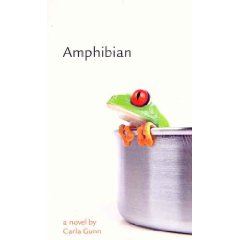 Nine-year-old Phineas William Walsh has an encyclopedic knowledge of the natural world. He knows that if you wet a dog's food with your saliva and he refuses to eat it then he's top dog, and he knows that dolphins can sleep half a brain at a time. What he doesn't know, though, is why his grandfather died, or why waste-of-flesh Lyle always picks on him. Or why his parents can't live together - after all, when other mate-for-life animals have a fight, it's not like one of them just packs his bags and leaves the country. To make it infinitely worse, he's worried sick about what humans are doing to the planet, and his mother is worried sick about him. But shouldn't everyone be losing sleep over the fact that a quarter of all Earth's mammals are on the Red List of Threatened Species? So, when a White's tree frog ends up in an aquarium in his fourth-grade classroom, it's the last straw, and he and his best friend, Bird, are spurred to action.
Nine-year-old Phineas William Walsh has an encyclopedic knowledge of the natural world. He knows that if you wet a dog's food with your saliva and he refuses to eat it then he's top dog, and he knows that dolphins can sleep half a brain at a time. What he doesn't know, though, is why his grandfather died, or why waste-of-flesh Lyle always picks on him. Or why his parents can't live together - after all, when other mate-for-life animals have a fight, it's not like one of them just packs his bags and leaves the country. To make it infinitely worse, he's worried sick about what humans are doing to the planet, and his mother is worried sick about him. But shouldn't everyone be losing sleep over the fact that a quarter of all Earth's mammals are on the Red List of Threatened Species? So, when a White's tree frog ends up in an aquarium in his fourth-grade classroom, it's the last straw, and he and his best friend, Bird, are spurred to action.
Finalist for the Commonwealth Writers’ Prize for Best First Book, (Canada and the Caribbean Region)
March 23- Karma Brown: Recipe For a Perfect Wife
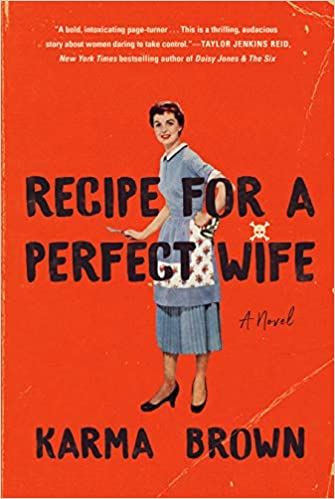 In this captivating dual narrative novel, a modern-day woman finds inspiration in hidden notes left by her home’s previous owner, a quintessential 1950s housewife. As she discovers remarkable parallels between this woman’s life and her own, it causes her to question the foundation of her own relationship with her husband–and what it means to be a wife fighting for her place in a patriarchal society.
In this captivating dual narrative novel, a modern-day woman finds inspiration in hidden notes left by her home’s previous owner, a quintessential 1950s housewife. As she discovers remarkable parallels between this woman’s life and her own, it causes her to question the foundation of her own relationship with her husband–and what it means to be a wife fighting for her place in a patriarchal society.
When Alice Hale leaves a career in publicity to become a writer and follows her husband to the New York suburbs, she is unaccustomed to filling her days alone in a big, empty house. But when she finds a vintage cookbook buried in a box in the old home’s basement, she is captivated by the cookbook’s previous owner–1950s housewife Nellie Murdoch. As Alice cooks her way through the past, she realizes that within the cookbook’s pages Nellie left clues about her life–including a mysterious series of unsent letters penned to her mother. Soon Alice learns that while baked Alaska and meatloaf five ways may seem harmless, Nellie’s secrets may have been anything but.
April 13- Ben Lerner: The Topeka School with Sandra Martin
 Adam Gordon is a senior at Topeka High School, class of 1997. His mother, Jane, is a famous feminist author; his father, Jonathan, is an expert at getting "lost boys" to open up. They both work at the Foundation, a well-known psychiatric clinic that has attracted staff and patients from around the world. Adam is also one of the seniors who brings the loner Darren Eberheart--who is, unbeknownst to Adam, his father's patient--into the social scene, with disastrous effects.
Adam Gordon is a senior at Topeka High School, class of 1997. His mother, Jane, is a famous feminist author; his father, Jonathan, is an expert at getting "lost boys" to open up. They both work at the Foundation, a well-known psychiatric clinic that has attracted staff and patients from around the world. Adam is also one of the seniors who brings the loner Darren Eberheart--who is, unbeknownst to Adam, his father's patient--into the social scene, with disastrous effects.
This is the story of a family's struggles and strengths: Jane's reckoning with the legacy of an abusive father, Jonathan's marital transgressions, the challenge of raising a good son in a culture of toxic masculinity. It is also a riveting prehistory of the present: the collapse of public speech, the trolls and tyrants of the new right, and the ongoing crisis of identity among white men.
A Finalist for the 2020 Pulitzer Prize for Fiction and a Barack Obama’s Top Pick.
April 15- Emma Donoghue: Akin
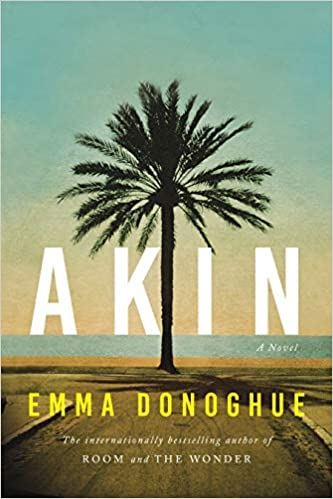 A personal note: Akin is my only book to grow out of a particular place: it’s inspired by the two years (2011-12 and 2015-16) I spent with my French partner and our children in Nice. Despite having a degree in French and English, over the decades I’ve consistently failed to become fluent in French, so this novel is a sort of apologetic love-letter to the country that intrigues me so deeply, where I will always be a stranger. I chose New York as the place where Noah’s family would end up not only because it was an obvious choice for people involved in the art world, but because my father the literary critic Denis Donoghue taught at NYU from the late seventies to the early 2010s, and the one year I spent in that city at the age of nine was eye-opening in every way.
A personal note: Akin is my only book to grow out of a particular place: it’s inspired by the two years (2011-12 and 2015-16) I spent with my French partner and our children in Nice. Despite having a degree in French and English, over the decades I’ve consistently failed to become fluent in French, so this novel is a sort of apologetic love-letter to the country that intrigues me so deeply, where I will always be a stranger. I chose New York as the place where Noah’s family would end up not only because it was an obvious choice for people involved in the art world, but because my father the literary critic Denis Donoghue taught at NYU from the late seventies to the early 2010s, and the one year I spent in that city at the age of nine was eye-opening in every way.
The story of Noah’s mother was prompted by the wartime experiences of Marguerite Matisse Duthuit, daughter to the painter who lived in Nice for so long, which I learned about in Hilary Spurling’s extraordinary biography Matisse: The Life. But I decided to make Noah’s grandfather a photographer instead, because that could be called the key twentieth-century art form, and because photographs (pre-digital) have such uncanny power as evidence. My image-maker friend Margaret Lonergan created some of Margot’s photos for me to include in the book, as well as designing the cover from a 1930s shot of the Promenade des Anglais by Swiss photographer Martin Hürlimann.
May 11- Jessica McDiarmid: Highway of Tears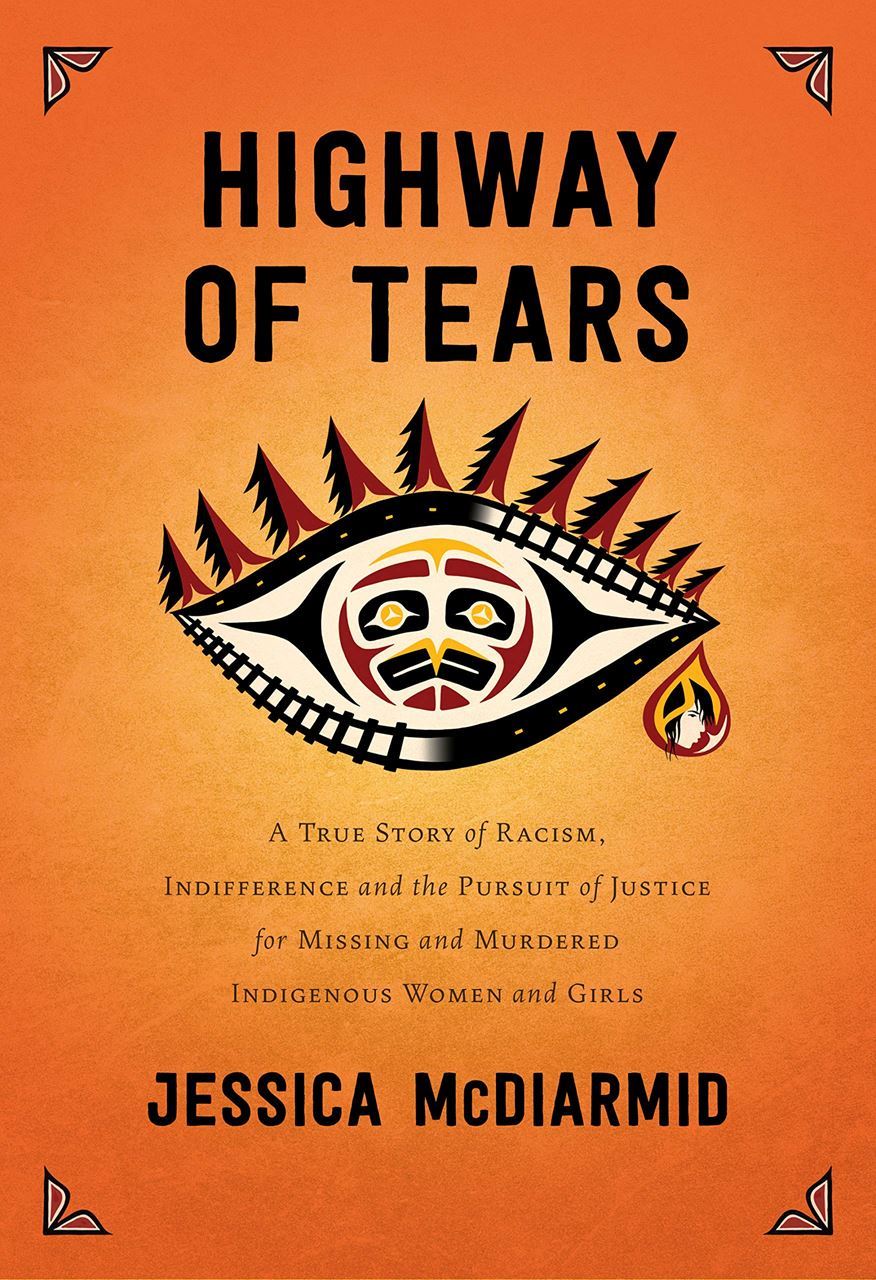 For decades, Indigenous women and girls have gone missing or been found murdered along an isolated stretch of highway in northwestern British Columbia. Highway 16 is known as the Highway of Tears, and it has come to symbolize a national crisis.
For decades, Indigenous women and girls have gone missing or been found murdered along an isolated stretch of highway in northwestern British Columbia. Highway 16 is known as the Highway of Tears, and it has come to symbolize a national crisis.
Journalist Jessica McDiarmid, investigates the devastating effect these tragedies have had on the families of the victims and their communities, and how systemic racism and indifference have created a climate where Indigenous women and girls are over-policed, yet under-protected.
Through interviews with mothers and fathers, siblings and friends, McDiarmid offers an intimate, first-hand account of their loss and relentless fight for justice. Examining the historically fraught social and cultural tensions between settlers and Indigenous peoples in the region, McDiarmid links these cases to others across Canada - now estimated to number up to 4,000.
Finalist for the 2020 RBC Taylor Prize for Non-Fiction
May 13- Linden MacIntyre: The Wake
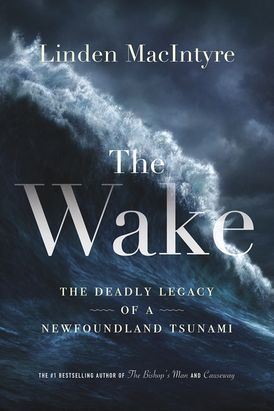 On November 18, 1929, a tsunami struck Newfoundland’s Burin Peninsula. Giant waves up to three storeys high hit the coast at a hundred kilometres per hour, flooding dozens of communities and washing entire houses out to sea. The most destructive earthquake-related event in Newfoundland’s history, the disaster killed twenty-eight people and left hundreds more homeless or destitute. It took days for the outside world to find out about the death and damage caused by the tsunami, which forever changed the lives of the inhabitants of the fishing outports along the Burin Peninsula.
On November 18, 1929, a tsunami struck Newfoundland’s Burin Peninsula. Giant waves up to three storeys high hit the coast at a hundred kilometres per hour, flooding dozens of communities and washing entire houses out to sea. The most destructive earthquake-related event in Newfoundland’s history, the disaster killed twenty-eight people and left hundreds more homeless or destitute. It took days for the outside world to find out about the death and damage caused by the tsunami, which forever changed the lives of the inhabitants of the fishing outports along the Burin Peninsula.
Scotiabank Giller Prize–winning writer Linden MacIntyre was born near St. Lawrence, Newfoundland, one of the villages virtually destroyed by the tsunami. By the time of his birth, the cod-fishing industry lay in ruins and the village had become a mining town. MacIntyre’s father, lured from Cape Breton to Newfoundland by a steady salary, worked in St. Lawrence in an underground mine that was later found to be radioactive. Hundreds of miners would die; hundreds more would struggle through shortened lives profoundly compromised by lung diseases ranging from silicosis and bronchitis to cancer. As MacIntyre says, though the tsunami killed twenty-eight people in 1929, it would claim hundreds if not thousands more in the decades to follow. And by the time the village returned to its roots and set up as a cod fishery once again, the stocks in the Grand Banks had plummeted and St. Lawrence found itself once again on the brink of disaster.
CBC and Globe and Mail Best Book of the Year
June 8- Helen Humphreys: Rabbit Foot Bill
 Canwood, Saskatchewan, 1947. Leonard Flint, a lonely boy in a small farming town befriends the local tramp, a man known as Rabbit Foot Bill. Bill doesn’t talk much, but he allows Leonard to accompany him as he sets rabbit snares and to visit his small, secluded dwelling.
Canwood, Saskatchewan, 1947. Leonard Flint, a lonely boy in a small farming town befriends the local tramp, a man known as Rabbit Foot Bill. Bill doesn’t talk much, but he allows Leonard to accompany him as he sets rabbit snares and to visit his small, secluded dwelling.
Being with Bill is everything to young Leonard—an escape from school, bullies and a hard father. So his shock is absolute when he witnesses Bill commit a sudden violent act and loses him to prison.
Fifteen years on, as a newly graduated doctor of psychiatry, Leonard arrives at the Weyburn Mental Hospital, both excited and intimidated by the massive institution known for its experimental LSD trials. To Leonard’s great surprise, at the Weyburn he is reunited with Bill and soon becomes fixated on discovering what happened on that fateful day in 1947.
Based on a true story, this page-turning novel from a master stylist examines the frailty and resilience of the human mind.
June 10- Olga Tokarczuk: Drive Your Plow Over the Bones of the Dead with Suanne Kelman.
 In a remote Polish village, Janina devotes the dark winter days to studying astrology, translating the poetry of William Blake, and taking care of the summer homes of wealthy Warsaw residents. Her reputation as a crank and a recluse is amplified by her not-so-secret preference for the company of animals over humans.
In a remote Polish village, Janina devotes the dark winter days to studying astrology, translating the poetry of William Blake, and taking care of the summer homes of wealthy Warsaw residents. Her reputation as a crank and a recluse is amplified by her not-so-secret preference for the company of animals over humans.
Then a neighbour, Big Foot, turns up dead. Soon other bodies are discovered, in increasingly strange circumstances. As suspicions mount, Janina inserts herself into the investigation, certain that she knows whodunit. If only anyone would pay her mind...
A deeply satisfying thriller cum fairy tale, Drive Your Plow over the Bones of the Dead is a provocative exploration of the murky borderland between sanity and madness, justice and tradition, autonomy and fate. Whom do we deem sane? Who is worthy of a voice?
Finalist for the International Booker Prize and the National Book Award for Translation




















